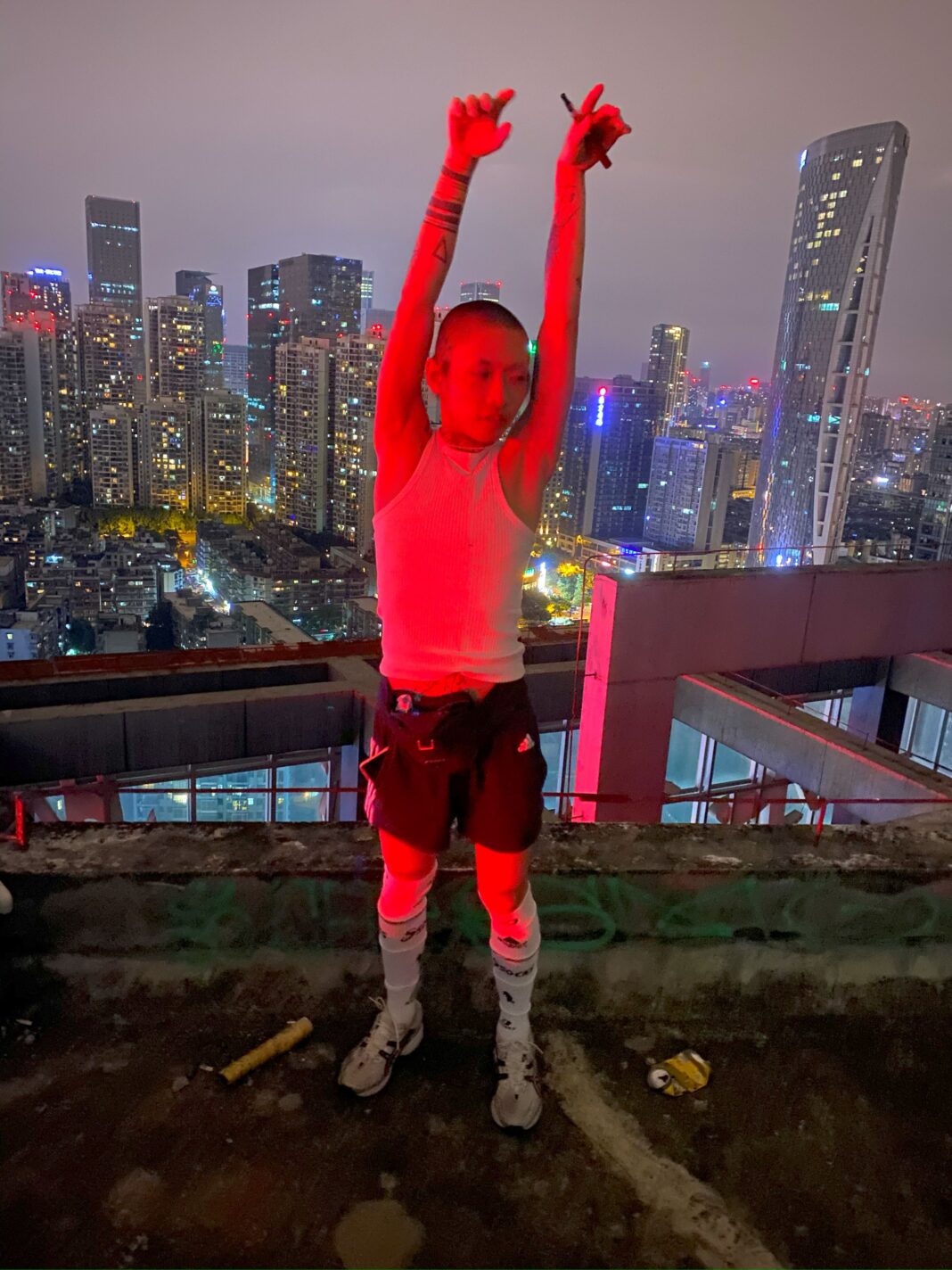If American filmmaker Ben Mullinkosson is to be taken at his word, he moved to Chengdu, China, on a whim, sight unseen, to make his senior thesis project for film school in Los Angeles.
“I turned to my friend and I was like, ‘Let’s just move to China and learn Chinese and then try to make a film.’ It was just this stupid idea. But he was like, ‘Okay, cool.’ We just picked Chengdu kind of randomly, but it turned out to be the best choice for me and my lifestyle, because number one, it’s one of the best cities for skateboarding in the entire world.”
Though Mullinkosson would return to Los Angeles for work as a commercial director in the midst of his love affair with Chengdu, he spent about five years in China making the film The Last Year of Darkness (which premiered on the Mubi streaming service March 15, 2024). The documentary feels like a fictional indie film, following the lives of nine friends—600 hours of footage in total—in what he calls a love letter to Chengdu. Most of the action takes place in the underground bar, Funky Town, where local queers, drag performers, skateboarders and assorted weirdos live the wildest life they can while they can—the city’s unceasing growth is always threatening to put an end to their safe space.
“I was sitting outside Funky Town, drinking this local plum wine, Maesil-ju, which is super sweet and gets you drunk pretty quickly,” Mullinkosson tells Pink Ticket Travel. “Yihao, who is the drag queen character in the film, is like, ‘When are you going to make a movie about me?’ And I was like, ‘Well, how about Saturday?’”
Many travellers, especially LGBTQ2S+ travellers, are wary about visiting China, not because they’re worried about crime and bashing—those risks are very low—but because of the Chinese government’s obsession with social control and conformity. It can seem oppressive. But Mullinkosson, who in other interviews has described himself as less queer than some of the other characters in the film, says Chengdu, a city of 16.3 million, is much more relaxed and has a reputation as being a very LGBTQ+-friendly city.
Pink Ticket Travel asked Mullinkosson about his fascination with Chengdu.
What made you fall in love with Chengdu?
Number one, it’s one of the best cities for skateboarding in the entire world. And number two, it’s the most chill city in China, meaning that a majority of people there prioritize drinking tea, hanging out and playing cards rather than working. It probably has the best underground party scene in China. I’m in Rio de Janeiro now, which is the most beautiful city I’ve ever been in, just visually, and Chengdu isn’t like that. It’s a dark, smoggy city that doesn’t have much sunlight. Summers are way too hot, winters are cold. But to me the lifestyle is paradise, this place for freedom in China, for skateboarding and partying.
Why do you think it’s more relaxed and LGBTQ+-friendly than the rest of China?
The first thing is that it’s the fifth-biggest city in China. It doesn’t get as much attention as Beijing, Shanghai, Quanzhou, Shenzhen. It’s not a coastal city. But there’s this Sichuan attitude. Even the dialect, which sounds kind of lazy and kind of sassy when compared to Mandarin, is relaxing and chill. Sichuan province is known for its pandas, you know, and pandas are just sitting there with their bamboo, chilling out. I think Sichuan people just like chilling and enjoying life.
In the film, Funky Town and the people who hang out there really straddle the boundaries between queer and straight identities. There’s a real fuzziness to that kind of underground culture.
Totally. I mean, all underground parties are queer, right? The best ones are. A lot of queer people come to Chengdu from other parts of China because it’s very open and there’s less judgment.
The Last Year of Darkness chronicles a time in the life of the characters where a construction project seems likely to put their favourite place out of business. Everything is always in flux.
Funky Town is gone, but the raving hasn’t stopped. Funky Town, in 2018, was a very special moment when, hidden behind the construction site, we had this place where we could go to be whoever we want to be. But there are other parties. Yihao runs this party called Queerness, and their parties often get shut down. But everyone’s trying to make it work, and life moves on, and techno lives on and lives in us.
How did you feel in Chengdu as an obvious foreigner?
I was very surprised how embraced by the community I am and feel. Even though I’m not there right now, it feels like home. Those are my best friends in the film. It’s a special place where I feel like the best version of myself.
This interview has been edited for length and clarity.


